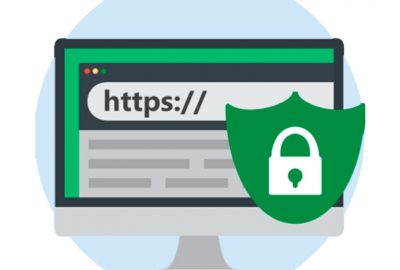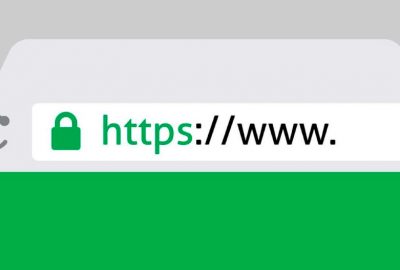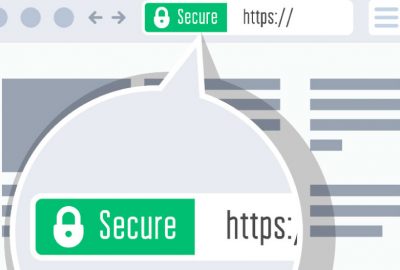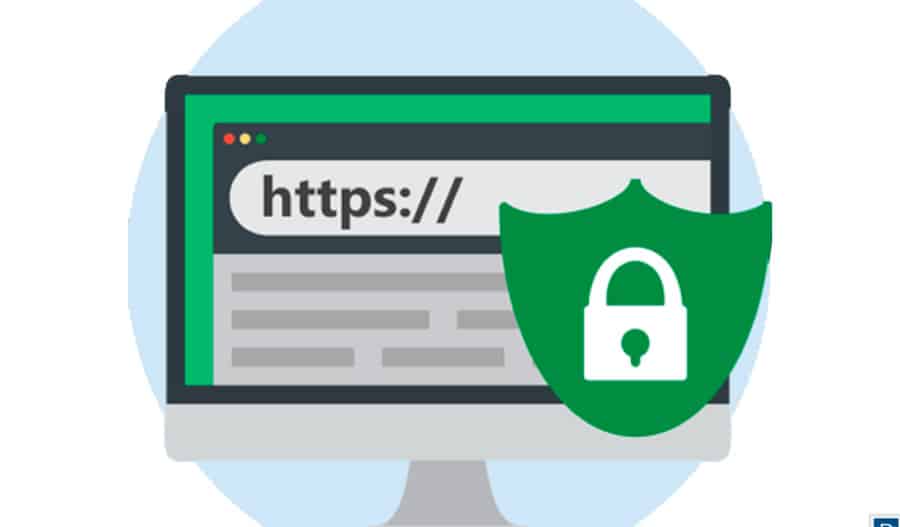 Having an SSL certification on your web page is a vital step for your company. However, there are many things to know about SSL Certificates. Since details about its implementation, variants, tools, and elements have emerged that have made it a matter of study for any company.
Having an SSL certification on your web page is a vital step for your company. However, there are many things to know about SSL Certificates. Since details about its implementation, variants, tools, and elements have emerged that have made it a matter of study for any company.
What is an SSL Certificate?
Let’s start by using the official definition found in SSL.com. “SSL is the standard security technology to establish encrypted links between web servers and browsers. This link ensures that all data passed between the web server and the browser remains private.”
The explanation
To explain it better, let’s give an example: let’s say you enter a page of a website. This site has a form and, after completing it, press submit. Intercepting this information is easy for a hacker if it is an unsecured website.
This interception is often referred to as a “man-in-the-middle attack.” What happens if the information contains details about a bank transaction? Or high-level information for a company? In both cases, we are facing a serious security problem. This kind of attack can occur in different ways. However, there is one which is the most used: a hacker inserts a small program on the server that hosts a website. The program waits in the background until a visitor begins to write information on the site. Then the information is captured and sent back to the hacker.
SSL security
 However, this kind of thing does not happen when you visit an SSL encrypted website. Because when the browser makes a connection to the server, it detects the SSL certificate. Then, it establishes the connection. This connection ensures that no one but you and the website can see or access the information. This connection occurs instantly, even faster than connecting to an unsecured website.
However, this kind of thing does not happen when you visit an SSL encrypted website. Because when the browser makes a connection to the server, it detects the SSL certificate. Then, it establishes the connection. This connection ensures that no one but you and the website can see or access the information. This connection occurs instantly, even faster than connecting to an unsecured website.
We can say that SSL Certificates are small data files that link a cryptographic key to the website. Then, the HTTPS protocol allows secure connections from server to browser. Using SSL protects credit card transactions, data transfers, and logins. However, more recently it is becoming the norm for social networks.
Types of SSL Certificates
There are three types of SSL Certificates. Each one applies to a type of domain. You must know them to select the one that best adapts to your company.
Domain Validation
The SSL Certificate Domain Validation (DV SSL) comes with 256-bit encryption. This certificate also supports 99.9% of web and mobile browsers. This SSL certificate works for owners who only want to validate their domains. Besides, obtaining this certificate can protect the domain versions www and not www.
The validation process for this domain certificate is simple. The user only needs to prove ownership of the domain to the Certification Authority. You can request verification by email, verification of file or registration information. Once the right to use said domain is verified, they allow your certification. Personal identity is not inspected. Displaying the encrypted information occurs when clicking on SSL.
Organization or company validation
 The Organization Validation SSL (OV SSL) certificate validates a company, business or organization. The purpose of this SSL is to encrypt confidential information. Especially for details used in transactions. This SSL has a 2048 bit signature and 256-bit encryption. Besides, it shows the name of the organization on the website seal. This is not only an indicator of security but also of legitimacy.
The Organization Validation SSL (OV SSL) certificate validates a company, business or organization. The purpose of this SSL is to encrypt confidential information. Especially for details used in transactions. This SSL has a 2048 bit signature and 256-bit encryption. Besides, it shows the name of the organization on the website seal. This is not only an indicator of security but also of legitimacy.
It ensures that the information shared is confidential. This increases customer confidence and thus the conversion rate of the company. OV SSL Certificates protect against phishing attacks and keep hackers at bay. The main difference with the SSL DV is that it is more reliable for companies that work online.
To get the SSL OV, the company must send the commercial documents to the relevant authority. However, the types of documents required depend on the company. Once done, the application passes probation and the certificate starts.
Extended Validation
Extended Validation SSL (EV SSL) certificates offer a high level of security. This certificate aims at guaranteeing customer confidence. EV SSL provides security against phishing attacks, email fraud, and others. It also shows the name of the company in the URL, ensuring that it is a genuine domain. This increases confidence on your website and, thus, in your industry. The SSL EV Certificate also has a Multi-domain security option. This allows the user to secure up to 100 domains.
The validation process of EV certificates is more stringent and takes longer. First, comes the process of verifying the domain registration information. After that, comes the requesting of commercial documents. The documents enter a verification state and the certification issues immediately.
SSL Certificates are not the last step
 At the end of the day, SSL Certificates are the first step in protecting your company. But it’s only that: the first step. There are different tools that you can use to improve digital security. One of them is the Tenable SecurityCenter CV. This tool complements with your SSL certification. Besides, it’s the only vulnerability management solution that provides compliance management capabilities.
At the end of the day, SSL Certificates are the first step in protecting your company. But it’s only that: the first step. There are different tools that you can use to improve digital security. One of them is the Tenable SecurityCenter CV. This tool complements with your SSL certification. Besides, it’s the only vulnerability management solution that provides compliance management capabilities.
Also, it uses continuous configurations of vulnerabilities in real-time. This ensures that an attacker that bypasses the SSL will encounter new obstacles. This way you know o one has access to your company’s and client’s information.
If you want to know more about how SecrityCenter CV and your SSL certification work, contact us. We will help you with all the information you need, as we offer the best tools on the market. Our team is here to advise you and provide you with a more efficient IT environment.



